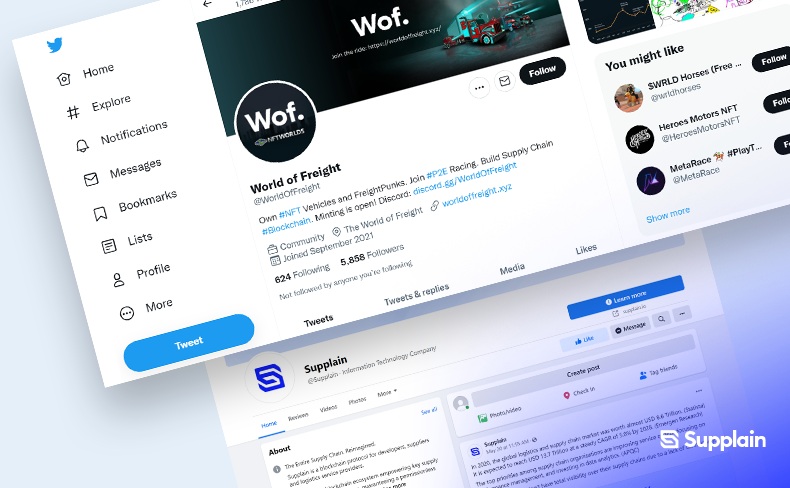Can Web3 Solve Social Media’s Biggest Problems?
The advent of Web3 has sparked significant discussions about its potential to transform various sectors, notably social media. Traditional social media platforms have been plagued by issues such as data privacy violations, censorship, misinformation, and a lack of user control.
As we venture into the possibilities offered by decentralized technologies, it is essential to explore whether Web3 can effectively address these challenges and reshape the social media landscape.
Understanding Web3 and Its Principles
Web3 represents the next generation of the internet, characterized by decentralized networks and blockchain technologies. Unlike Web2, which is dominated by centralized entities, Web3 aims to empower users by giving them more control over their data and interactions.
Key principles of Web3 include:
- Decentralization: Eliminating central authorities to distribute power among users.
- Ownership: Users can own their data and digital assets, fostering a sense of agency.
- Transparency: Blockchain technology enables transparent operations, allowing users to verify actions and transactions.
- Interoperability: Different platforms can work together seamlessly, enhancing user experience.
These principles present a promising framework for addressing the fundamental issues that plague current social media platforms.
Data Privacy and User Control
One of the most pressing concerns in social media today is data privacy. Centralized platforms often exploit user data for profit without adequate consent or transparency. Web3 offers a solution through its emphasis on user ownership and control over personal data.
Self-Sovereign Identity: Web3 technologies enable users to create and manage their digital identities without relying on centralized entities. This self-sovereign identity ensures that users have complete control over their personal information.
Data Monetization: Users can choose to monetize their data directly, receiving compensation for its use. This shift allows individuals to benefit financially from their contributions while maintaining control over how their data is utilized.
Privacy by Design: Many Web3 applications prioritize privacy, integrating features that protect user data from unauthorized access. This approach not only enhances security but also builds trust between users and platforms.
By empowering users to take charge of their personal information, Web3 could significantly mitigate the data privacy issues that have long plagued social media.
Combating Censorship and Misinformation
Censorship and the spread of misinformation are critical challenges that social media platforms face. Centralized control often leads to biased content moderation practices, resulting in the suppression of diverse viewpoints. Web3's decentralized nature may provide a viable alternative.
Decentralized Governance: Web3 platforms can implement decentralized governance models, allowing users to participate in decision-making processes. This inclusivity can help ensure that content moderation policies reflect a broader range of perspectives.
Immutable Records: Blockchain technology creates immutable records of content, making it difficult for any single entity to alter or delete information. This transparency can deter censorship and promote accountability.
Community Moderation
Many Web3 platforms encourage community-driven moderation, where users collaboratively assess content. This model can foster a more democratic approach to content evaluation, reducing the risk of biased censorship.
By leveraging these features, Web3 has the potential to create social media environments that are more resilient to censorship and misinformation, fostering open discourse and diverse opinions.
Enhancing User Engagement and Community Building
The traditional social media model often prioritizes engagement metrics that incentivize sensational content over meaningful interactions. This focus can lead to superficial connections and a decline in genuine community building. Web3 offers innovative solutions to enhance user engagement and foster authentic relationships.
Tokenization of Engagement: Web3 allows for the tokenization of user interactions, where users can earn tokens for contributing valuable content or engaging positively with others. This system encourages meaningful participation and rewards users for their contributions.
Decentralized Autonomous Organizations (DAOs): DAOs enable communities to self-organize and govern themselves. By allowing users to have a say in platform decisions, DAOs can create a sense of ownership and belonging, strengthening community ties.
Niche Platforms: Web3 facilitates the creation of niche social media platforms tailored to specific interests or communities. This specialization can lead to deeper connections among users who share common passions, enhancing the overall user experience.
Through these mechanisms, Web3 can transform social media into a space that prioritizes genuine engagement and community building, moving away from the superficial interactions characteristic of traditional platforms.
Conclusion
While Web3 presents promising solutions to some of social media's most significant challenges, it is essential to recognize that the transition to a decentralized model will not be without its hurdles. Issues such as scalability, user adoption, and regulatory concerns must be addressed to realize the full potential of Web3 in social media.
Nevertheless, the principles of decentralization, user ownership, and transparency offer a compelling vision for the future of social media. By empowering users and fostering inclusive environments, Web3 has the potential to create platforms that prioritize privacy, combat censorship, and enhance community engagement. As we move forward, the integration of Web3 technologies may well redefine the social media landscape, paving the way for a more equitable and user-centric future.
References
- Web3 Foundation
- Ethereum.org
- Decentralized Identity Foundation
- Blockchain for Social Impact Coalition
- The DAO: A New Era of Decentralized Governance
- Tokenomics: A Guide to Token Models
- Community Building in Web3
- The Role of Blockchain in Combating Misinformation
- Self-Sovereign Identity: The Future of Digital Identity
- Decentralized Social Media: The Future of Online Interaction




























![[ℕ𝕖𝕧𝕖𝕣] 𝕊𝕖𝕝𝕝 𝕐𝕠𝕦𝕣 𝔹𝕚𝕥𝕔𝕠𝕚𝕟 - And Now What.... Pray To The God Of Hopium?](https://cdn.bulbapp.io/frontend/images/79e7827b-c644-4853-b048-a9601a8a8da7/1)



![[LIVE] Engage2Earn: Save our PBS from Trump](https://cdn.bulbapp.io/frontend/images/c23a1a05-c831-4c66-a1d1-96b700ef0450/1)










